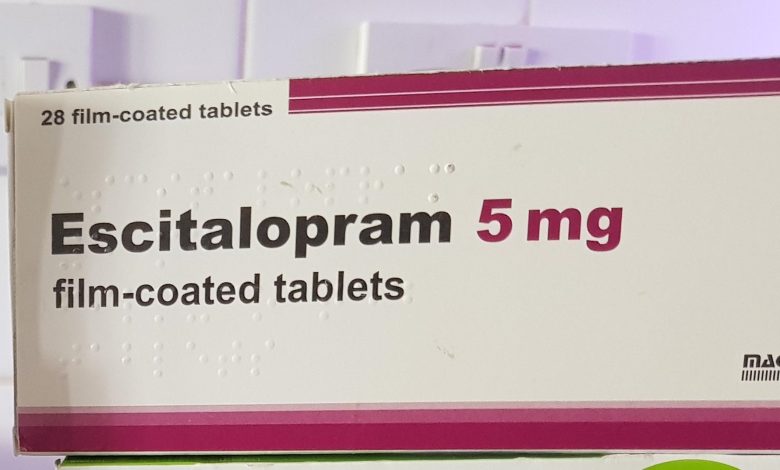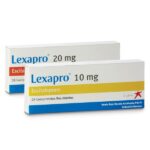The 7 Most Common Lexapro Side Effects In The First Week

Lexapro (escitalopram) is a selective serotonin reuptake inhibitor (SSRI) antidepressant medication used to treat depression and anxiety disorders, such as generalized anxiety disorder, social anxiety disorder, and panic disorder.
Lexapro was first approved by the US Food and Drug Administration (FDA) in 2002 and was developed by the Danish pharmaceutical company Lundbeck. It quickly became a popular treatment option due to its effectiveness and relatively mild side effect profile compared to earlier-generation antidepressants.
Over the years, Lexapro has undergone numerous clinical trials to evaluate its safety and efficacy, and it has been found to be generally well-tolerated by most patients. It works by increasing the levels of serotonin, a neurotransmitter that regulates mood and behavior, in the brain.
In addition to its approved uses, Lexapro has also been used off-label to treat other conditions such as obsessive-compulsive disorder (OCD), post-traumatic stress disorder (PTSD), and premenstrual dysphoric disorder (PMDD). However, it should only be used as directed by a healthcare provider.
Today, Lexapro is one of the most commonly prescribed antidepressant medications in the United States, with millions of prescriptions filled each year. Its availability in generic form has made it a more affordable treatment option for patients who may have difficulty affording brand-name medications.
How Is Lexapro Taken
Lexapro (escitalopram) is typically taken once daily, either in the morning or evening, with or without food. The medication is available in tablet form and should be taken with water.
The dosage of Lexapro can vary depending on the condition being treated, the patient’s age and medical history, and other factors. It is important to follow the dosage instructions provided by the healthcare provider and to not change the dosage or stop taking the medication without first consulting with a healthcare professional.
Lexapro is usually started at a low dose, which is gradually increased over several weeks until the desired therapeutic effect is achieved. It may take several weeks for the full effects of the medication to be felt.
For major depressive disorder and generalized anxiety disorder, the recommended starting dose of Lexapro is 10 mg once daily, which may be increased to a maximum dose of 20 mg once daily if needed. For patients with hepatic impairment or who are over the age of 65, a lower starting dose of 5 mg once daily may be recommended.
For obsessive-compulsive disorder, the recommended starting dose of Lexapro is 10 mg once daily, which may be increased to a maximum dose of 20 mg once daily if needed.
For panic disorder, the recommended starting dose of Lexapro is 5 mg once daily, which may be increased to a maximum dose of 10 mg once daily after one week.
It is important to take Lexapro consistently at the same time each day to maintain a steady level of the medication in the body. If a dose is missed, it should be taken as soon as possible, unless it is close to the time for the next scheduled dose. In this case, the missed dose should be skipped and the regular dosing schedule should be resumed. It is not recommended to double the dose to make up for a missed dose.
Patients should also avoid abruptly stopping the medication, as this can lead to withdrawal symptoms. A healthcare provider should be consulted before discontinuing Lexapro to determine the best course of action.
The 7 Most Common Lexapro Side Effects In The First Week
Lexapro can cause side effects, and some of these side effects may occur in the first week of treatment. Here are the 7 most common Lexapro side effects in the first week:
1. Nausea: Nausea is a common side effect of Lexapro, and it may occur in the first few days of treatment. Taking the medication with food or at bedtime may help reduce nausea.
2. Headache: Headaches are another common side effect of Lexapro in the first week. Over-the-counter pain relievers may help alleviate this symptom.
3. Dizziness: Dizziness is a common side effect of Lexapro, especially when standing up too quickly. It is important to get up slowly and be cautious when performing tasks that require alertness.
4. Insomnia: Some people may experience difficulty falling or staying asleep when taking Lexapro. Taking the medication in the morning or adjusting the dosage may help alleviate this symptom.
5. Fatigue: Fatigue is another common side effect of Lexapro in the first week. It is important to get plenty of rest and to avoid driving or operating heavy machinery until this symptom subsides.
6. Dry mouth: Dry mouth is a common side effect of Lexapro, and it may be alleviated by drinking plenty of water and using sugar-free gum or candies.
7. Sweating: Sweating is a less common side effect of Lexapro, but it may occur in some people in the first week of treatment. Drinking plenty of water and wearing breathable clothing may help reduce sweating.
It is important to note that not everyone will experience these side effects, and many people may not experience any side effects at all. If any of these side effects persist or worsen, or if you experience any other unusual symptoms, it is important to contact your healthcare provider for further evaluation and advice.
How To Cope With Lexapro Side Effects In The First Week
Coping with Lexapro side effects during the first week of treatment can be challenging, but there are a few strategies that can help:
1. Talk to your doctor: Your doctor can offer guidance and support as you adjust to the medication. They may be able to adjust your dosage or recommend other medications or treatments to help manage side effects.
2. Stay hydrated: Drinking plenty of water can help flush the medication out of your system and reduce the risk of side effects like headaches.
3. Get plenty of rest: Fatigue is a common side effect of Lexapro, so it’s important to get plenty of rest. Try to stick to a regular sleep schedule and prioritize restful activities like reading or listening to calming music.
4. Eat a balanced diet: Eating a healthy, balanced diet can help reduce side effects like nausea or stomach upset.
5. Exercise: Exercise can help reduce stress and anxiety, which may exacerbate side effects. Stick to light to moderate exercises, like walking or yoga, and avoid strenuous activities until you know how the medication affects you.
6. Practice stress-reduction techniques: Stress can worsen side effects, so it’s important to practice stress-reduction techniques like meditation or deep breathing.
7. Reach out for support: Talking to a trusted friend or family member, joining a support group, or seeking therapy can all be helpful in managing the emotional and psychological side effects of medication.





